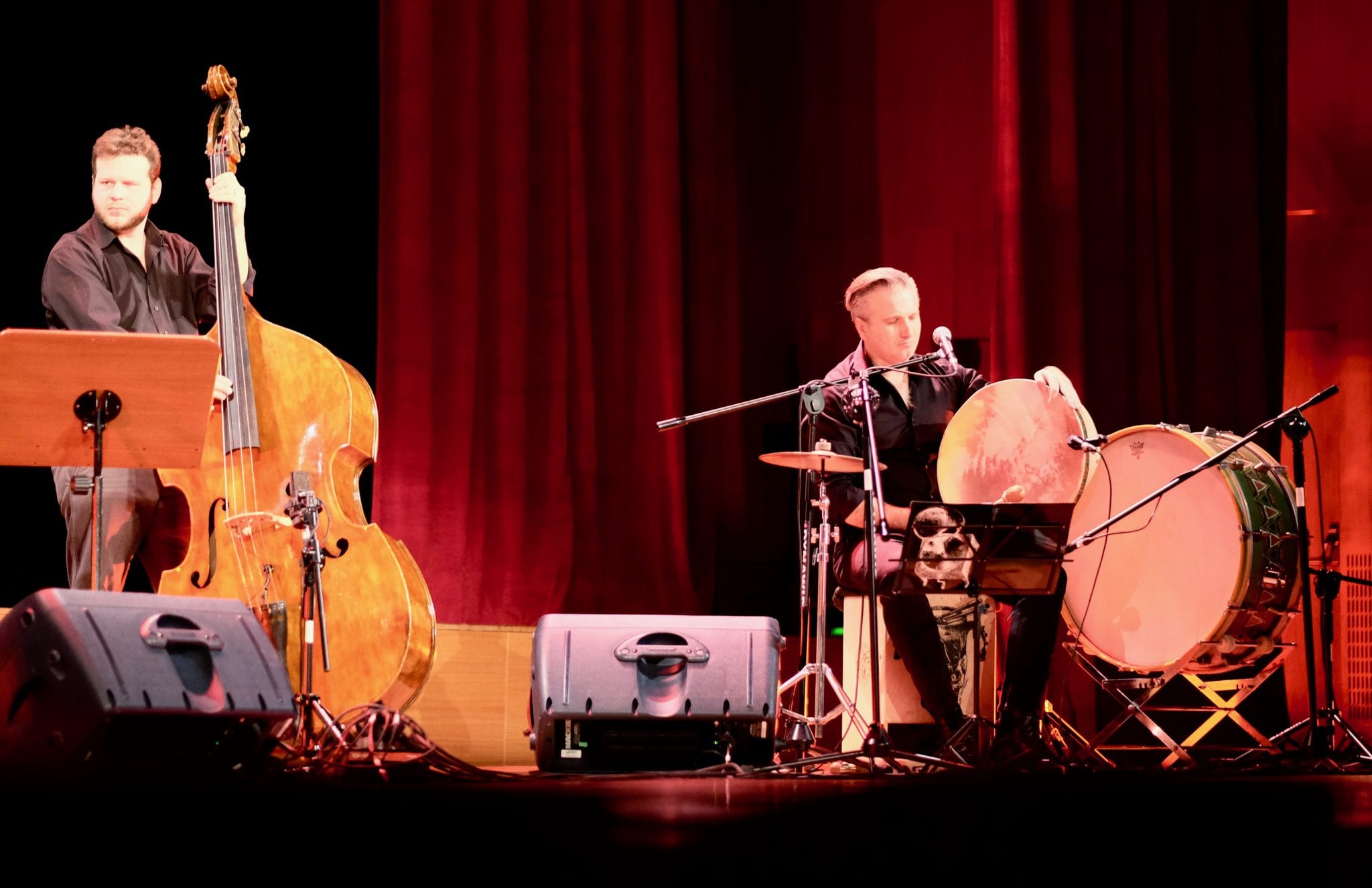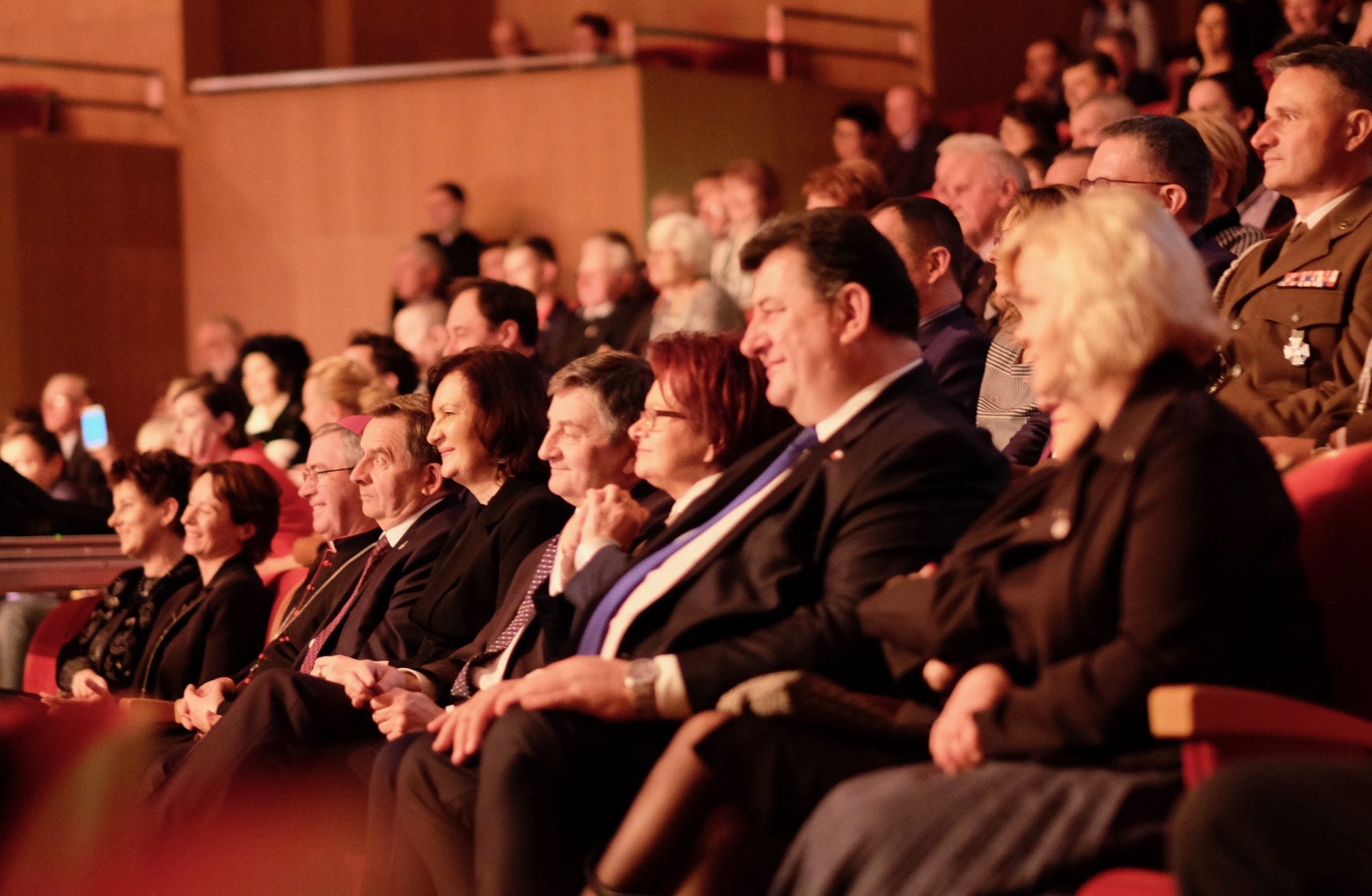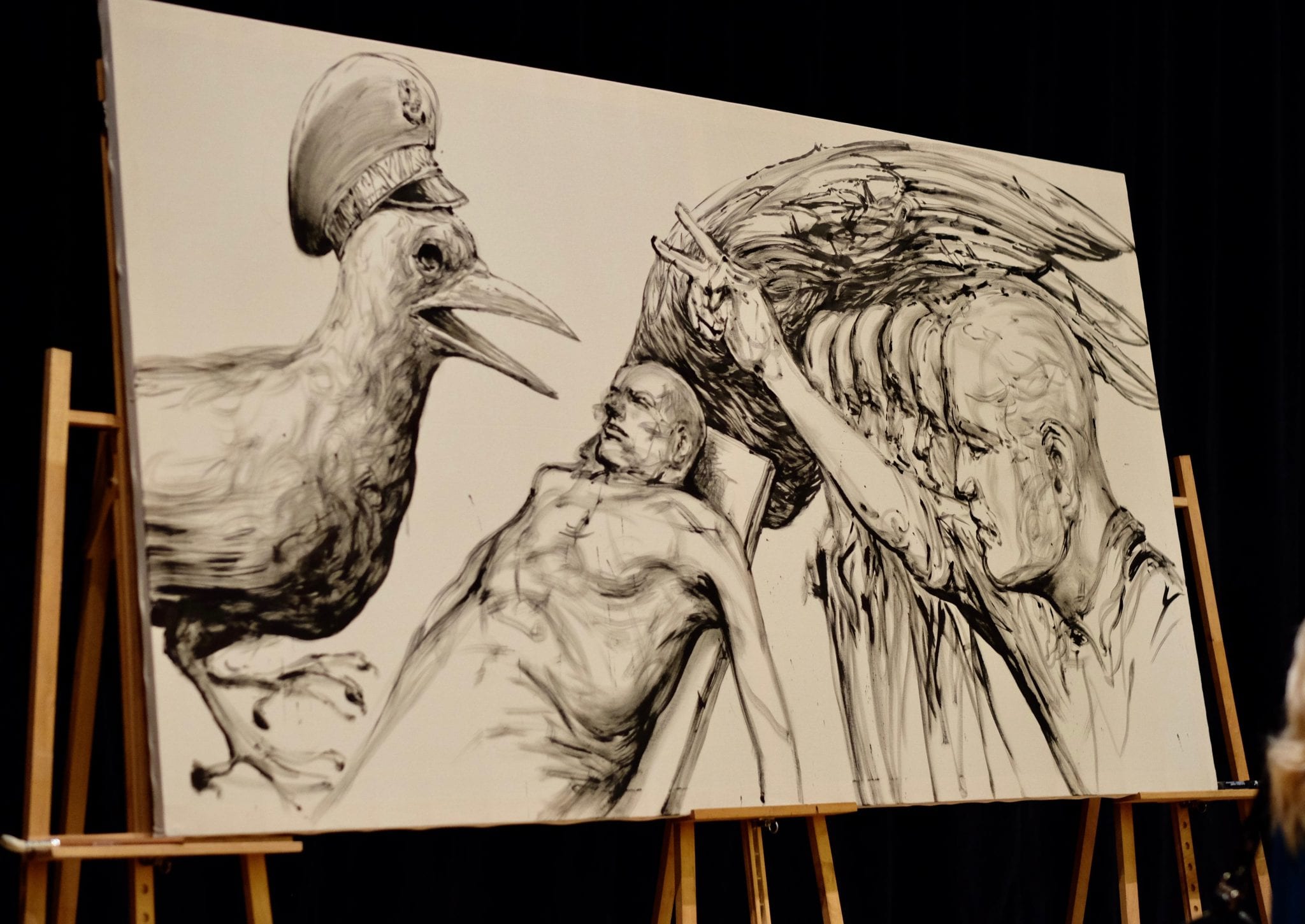The Podkarpacie Philharmonic in Rzeszów hosted the Congress of Repressed Persons, Solidarity Activists and War Veterans. The event was held under the honorary patronage of the Speaker of the Sejm.
Marek Kuchciński emphasized that throughout the country, the celebrations of the centennial of Poland's regaining independence have become an opportunity to recall our long road to freedom and twenty years of extraordinary involvement of the entire society in rebuilding the Second Republic.
The Marshal recalled figures to whom "the time of the triumph of human thought, strength and energy" brought inspiration to create things that are often still used today. Among them were: Stefan Banach, one of the founders of modern algebra; Karol Szymanowski, a great composer; Józef Hoffman, an outstanding pianist and author of many inventions, such as the office paperclip, still intended for use today and modeled after the violin key; Jan Szczepanik of Mościsk, creator of color television, or Henryk Magnuski, whose walkie talkie served for decades as modern cell phones.
Marek Kuchciński emphasized that the 20-year-long Second Republic of Poland was the time when the number of Polish intelligentsia doubled and the number of illiterates decreased by half. It was a time of educating hundreds of thousands of high-class specialists and millions of conscious patriots ready to make sacrifices for the homeland. Finally, it is a time of an increased sense of the importance of the national community and the need to identify with the raison d'etre of the Polish state. A time of strengthening key individual and collective values in social life, such as self-sacrificing service to others, diligence and steadfastness, and at the same time a time a time of great investments: COP, with cities such as Stalowa Wola, Rzeszów, Mielec, Nowa Dęba, Gdynia and Truskawiec, where over 300 spa houses were built in 20 years.
The Speaker of the Sejm pointed out that the time of successful development was interrupted by the decades-long German and Soviet aggression against Poland. - But we took up a fight in defense of independence, both by armed methods and by oppositional work. Those who fought with guns in their hands were branded traitors to the nation. They faced imprisonment and often the death penalty. Others who resisted were pushed to the margins of society. It was not until the 21st century that the cursed soldiers were fully rehabilitated and only today, thanks to the Polish state, can we bury them with dignity," said Marek Kuchciński.
- In our land of the Podkarpacie region from the end of the 1960s the opposition activities were as strong as those of the soldiers of the Blasphemy in the 1940s and the beginning of the 1950s. Under the leadership of the Metropolitan Archbishop of Przemyśl Ignacy Tokarczuk we fought for respect for human dignity, for the right to freedom of conscience and thought. The Archbishop, despite prohibitions, began a huge work of building churches, which awakened in us the desire to live free from prohibitions and communist directives," recalled the Speaker. He also emphasized the influence that the local communities formed in defense of churches had on the creation of the first independent forms of organization in the late 1970s, such as the Committee for the Defense of Believers in Kmiecie in Przemyśl, with Fr. Michalski, Wit Siwiec, Stanislaw Sudol, and Staszek Kusinski; the Committee in Stalowa Wola with Jan Kozlowski; the Committee for Peasant Self-Defense of the Rzeszow Area with Janusz Szkutnik; the open actions in defense of the land in the Bieszczady Mountains with Wieśek Nowacki; the occupational strikes in Ustrzyki Rzeszow; the Ustrzyce-Rzeszow Accords; and the great victory of Solidarity and Solidarity RI.
- We were united. This unity became the greatest weapon in the fight against the communist system imposed on Poland. Today, looking back, we can boldly say that it was thanks to your courage, fighting strength and determination that communism fell. You have set an example to other nations that freedom and independence must be demanded and fought for with all our might. We started a great march towards independence and we ended it with a great victory', said Marek Kuchciński.
The Marshal paid the highest respects to war veterans, activists of the anti-communist underground and the opposition of the post-war years and the Solidarity era.
- Without your sacrifice and the conviction of the rightness of the fight, there would be no free and sovereign Poland. Without our own strong state, we would serve others," he said.
The organizer of the meeting, which is a part of the 'Independent memory and pride of generations' project, was Podkarpackie Voivode Ewa Leniart.
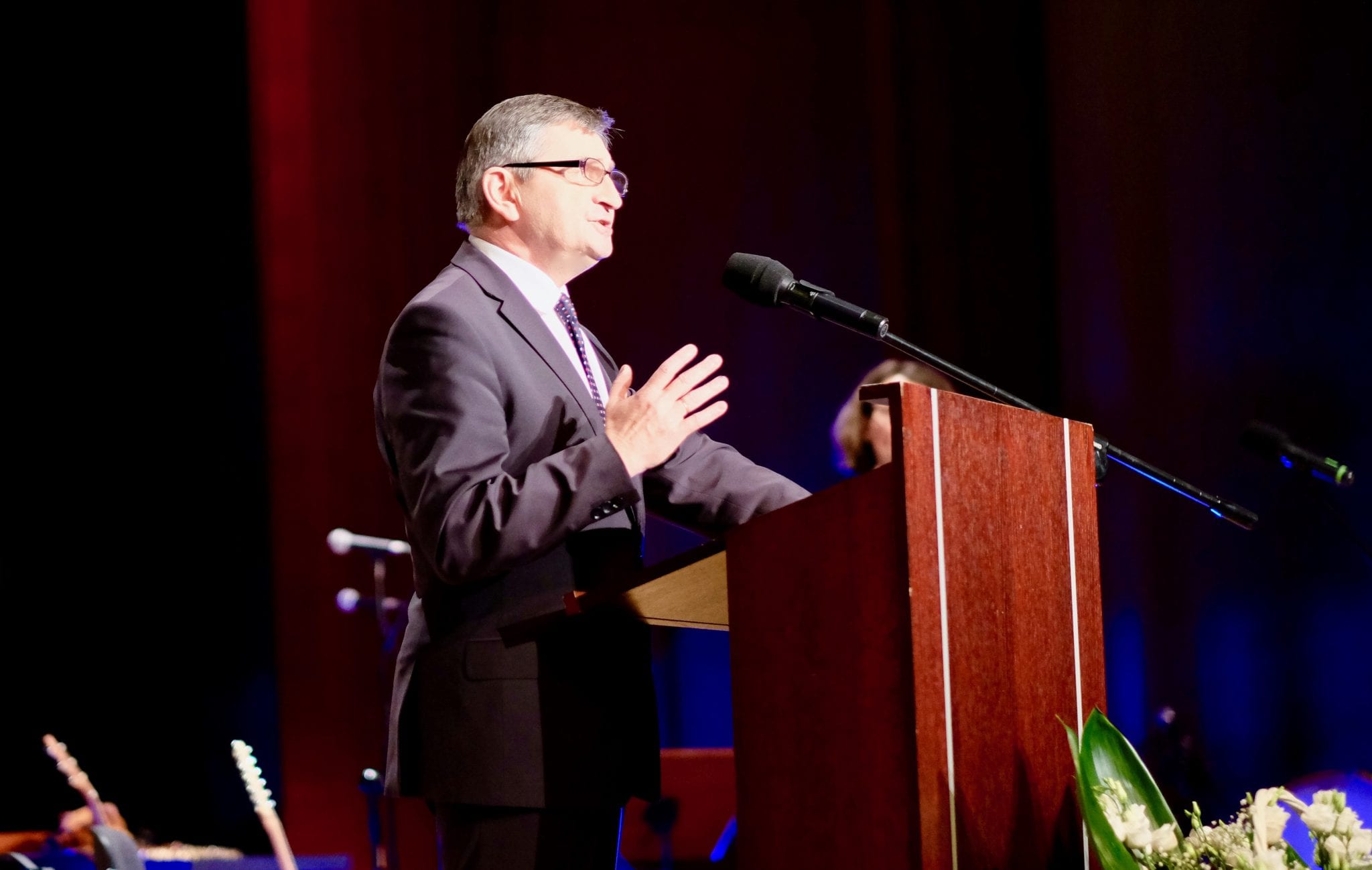
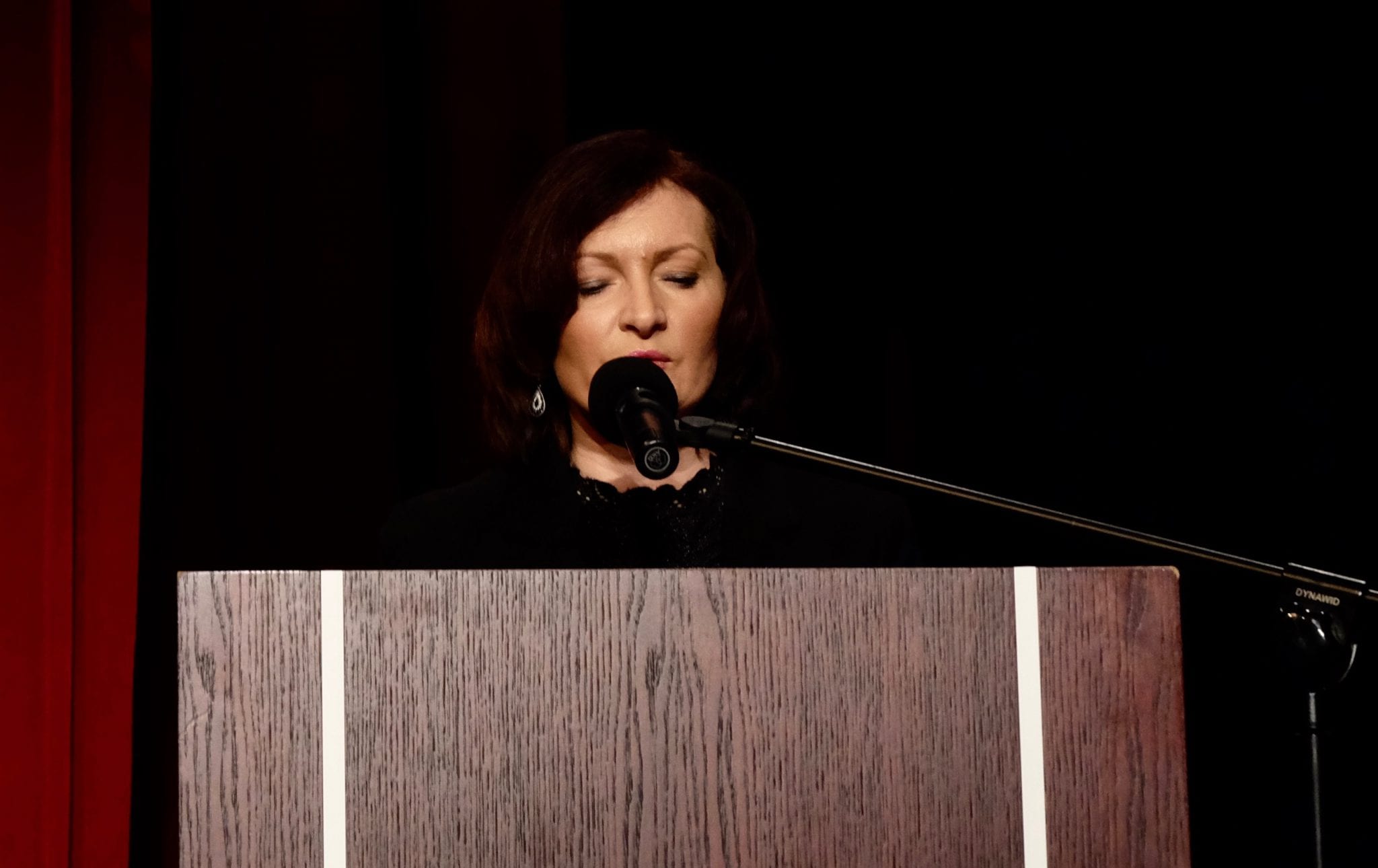 Ewa Leniart
Ewa Leniart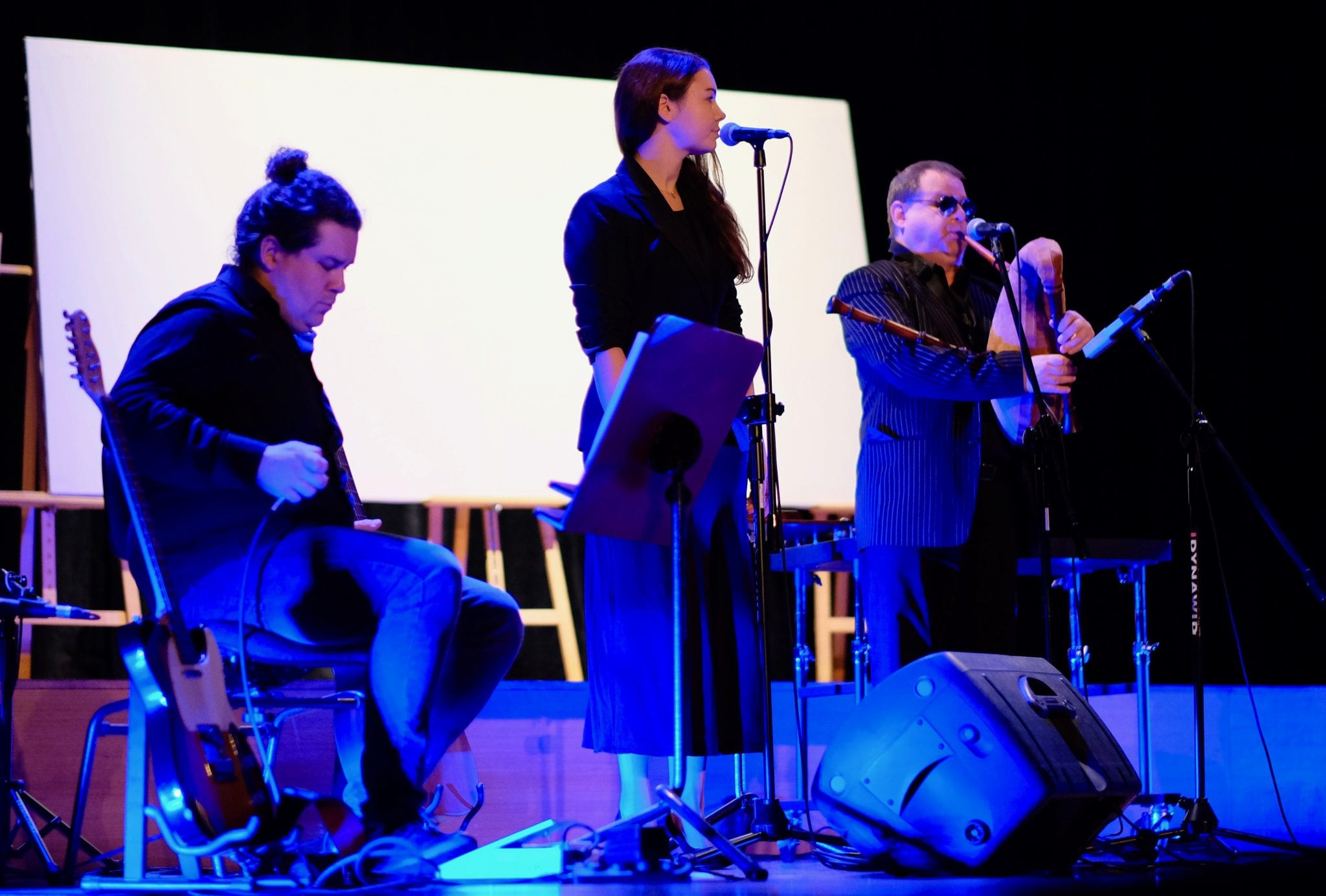 The ceremony ended with a concert by the Pawel Steczkowski band entitled "Internment Songs. "Internment Songs".
The ceremony ended with a concert by the Pawel Steczkowski band entitled "Internment Songs. "Internment Songs". 